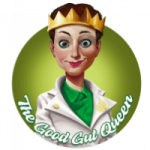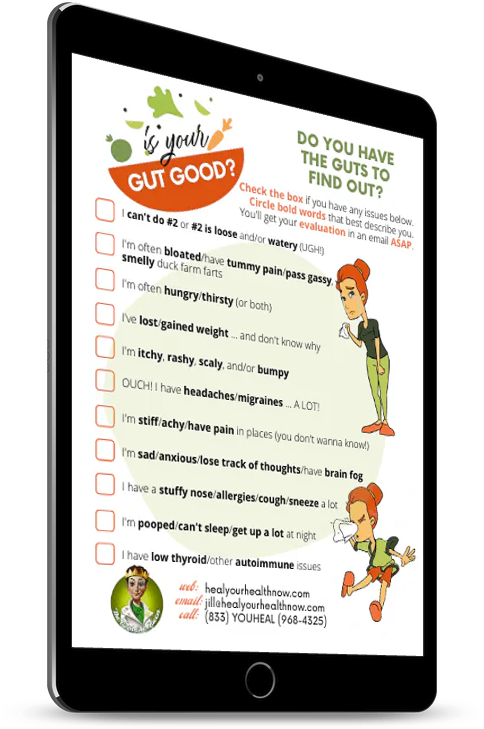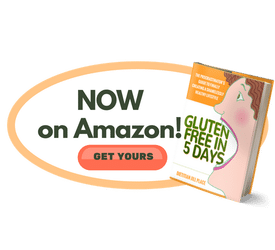 By Dietitian Jill Place
By Dietitian Jill Place
One of my SEVERELY eating-disordered clients told me the other day “Before I ate 20 and now I have one …” I don’t know about you … but if you’ve ever had a yen to scarf down an entire package of oreos … that statement was HUGE!
I don’t know how many people actually have an unhealthy relationship with food. My sensibility is skewed because I work with so many who do.
But I would say that the number is considerable. And … judging from these actual statistics about children I’m not surprised … they’re all shocking but the last two even more so …
- 42% of 1st-3rd grade girls want to be thinner.
- 81% of 10 year old children are afraid of being fat.
- 46% of 9-11 year-olds are “sometimes” or “very often” on diets.
- 35-57% of adolescent girls engage in crash dieting, fasting, self-induced vomiting, diet pills, or laxatives.
- In a college campus survey, 91% of the women admitted to controlling their weight through dieting.
- As many as one in five children (31% in one study) between 10 and 18 years old are engaging in intentional self-harm, such as cutting, burning, or hitting themselves.
So if 81% of 10 year old children are afraid of being fat (and 20% of children ARE statistically obese) how do you think that the future of our society feels about food? And why am I bringing up the self-harm?
Well … here’s another statistic. Almost two-thirds of 16-year-old females, and two-in-five 24-year old males (yes … men have disordered eating too) who self-harmed also reported some form of disordered eating.
I see self-harm pics every day graphically splashed across my hospital charts. And my client who was finally eating just one engaged in it for years.
So how do we stop all this (FYI … she fortunately stopped self-harming a long time ago)? And eat just one (more advanced healing … for her and everyone else)? Here’s my take …
Most Overeating is Learned
A 2018 study in Current Addiction Reports summarized …
Both in the laboratory and in real life, cue-elicited appetitive reactivity (e.g., eating desires) can be easily learned, but (long-term) extinction is more difficult.
NO SH-T! If you’ve tried to change your eating habits you know what I mean.
The study also equated overeating with Pavlov’s dog. Y’know the dog in that 1890 study that salivated to a cue associated with eating when the food wasn’t there anymore? Well … yes … our eating response IS as primitive as a dog’s.
But we’re much more creative than dogs. I can’t tell you how many weird things I’ve heard people do around food. Sorry … I’m not going to share them here.
But I do agree with the research when it says that these behaviors can be easily learned. And are not so easy to get rid of.
First it might be important to understand that …
Eating is The Easiest Coping Mechanism We’ve Got
Hey … you used to have to hunt and kill stuff, drag it home, and carve it up (cooking optional). Or forage for things growing on trees or sprouting from the ground.
Eating was a full-time job then. Now you can get anything you want whenever you want on every street corner.
So it’s the easiest thing to be triggered by food, eat, and get instant rewards for the behavior … the food tastes good, we feel sated, and we feel good emotionally.
What’s so bad about that? Well … when this all becomes perverted … when we use food for some other reason than hunger … this all goes horribly wrong.
I used to have a client that did what I called “the loop”. When she wanted to binge, she’d go to the same 3 fast-food places … all in a row … it was her ritual …
And that’s what may happen when you begin to use your food learned behavior as a coping mechanism to deal with emotions. You eat to stop feeling a certain way … but then guilt and shame flood in.
And the overeating actually makes you feel worse than you did in the first place. It’s a researched fact that …
Most Overeating Begins with Anxiety
In a 2006 study in the International Journal of Eating Disorders, anxiety was the most frequently cited among a list of emotions that trigger binge eating, followed by sadness, tiredness, anger, and happiness. And that’s not only true of people with eating disorders.
I am so grateful for my acting training. I had deep feelings I neither understood nor could contain. If anyone felt like a freak … I did.
I found my understanding of these deep feelings in acting. Where they were not only prized but applauded.
I stayed until I had a passable personal understanding of my own feelings. And then there was no reason to act anymore.
I don’t know a lot of people who are willing to pass through the fire to do this journey. It’s terrifying, brought on a major panic disorder, and landed me in a psychiatric hospital for a brief time.
Suppressing Feelings Leads to Anxiety
Because we’re brought up to … and I also think it’s a natural response to … deny, avoid or disregard uncomfortable thoughts and feelings. We’re programmed for survival … and although some feelings help us survive, others only serve to slow the survival instinct.
It’s those feelings and lack of feeling them … in my opinion … that can have no other response but anxiety. A longing to express something that we’ve learned to suppress.
So … instead of suppressing it … we turn to overeating as a way to overcome this discomfort. After all … food is so readily available now … and we don’t have to spend long hours preparing it anymore.
And all this available food is mostly high in seductive, addictive fat and sugar. So the cycle then becomes fulfilled. We don’t want to feel … we become anxious … we eat … NO PROBLEM!
Anxiety Research Agrees with Me
I realize what I’m describing is WAAAY too simplistic. We’re complex beings and arrive at overeating in many ways. But … after years of working with people … this is the best … and most accessible explanation I can come up with.
Actually, research agrees with me. A 2013 article in Health Psychology Research concluded that
This review [of 107 studies] argues that anxiety is a critical component in the application of empirically supported binge eating theory. This is supported by the body of previous research that illustrates not only a high co-occurrence of anxiety and binge eating symptoms, but also the ways in which anxiety may serve a unique role in the development and maintenance of binge eating syndrome.
How to Eat One … Reframe Your Food Relationship
Here are some ways to dig yourself out of this anxiety-overeating trench. I warn you though … reframing your relationship with food takes a lot of time and effort.
But … if you’re really sincere … here are some TALL-ORDER TIPS to get you started. Another warning … these beliefs have been entrenched into our psyches since before we probably could walk or speak.
Maybe we even found about them in the womb (being an intuitive too I wouldn’t be surprised). So that trench could be really deep …
- Ditch the belief that calories and other nutritional information will “save you” Years ago, I dated a psychologist who labeled people who relied upon “experts” and other people to solve their problems as having a “Save-Me Syndrome”.
I just got a comment today from someone who wanted to know the nutritional analysis of one of my recipes. My comment “why will this help you?” Calories and other nutritional information just make us obsessed in a negative way with food.
And keep you from enjoying it in the way it was meant by nature … as nurturing and nourishing. Change is scary … and defining food by its components seems to calm that fear. Maybe that’s why we do it so readily.
Or maybe we’re just brainwashed into thinking that way by the existing literature. But changing your relationship with food has nothing to do with calories or points or exchanges or whatever names diets give themselves to appear less like diets.
The bottom line … you have to dogpaddle against the prevailing nutrition information wave and find the personal strength to make change happen all on your own. But enlisting some help to make it easier is always a good idea.
More “How to Eat One” Tips
- Allow yourself to feel those feelings you’ve been avoiding. The good news … feeling feelings is like riding a bike … a little rickety at first … we may also fall a couple of times … but then our bodies adapt and it becomes a no-brainer. We’re SUPPOSED to feel feelings … they’re an integral part of our primal makeup. And feeling them will release you from that anxiety-overeating prison you consigned yourself to.
The bad news … some of those feelings may have to do with trauma … which experts have now found you can develop over the smallest thing. So you do need a professional skilled in trauma treatment to unravel those personal mysteries.
It may be unpleasant at times. But trust me … it’s worth it!
Even More “How to Eat One” Tips
- Stop labeling foods as “good” and “bad” or “healthy” or “unhealthy”. Unfortunately, diets draw those battle lines for us. And I’m frustrated as H- when I hear this from clients … and watch their energy drop when I tell them the reality.
Which is that this is possibly a very-old … back-to-the-womb thing. And the reality … [click_to_tweet tweet=”there IS no right or wrong where food is concerned; there is just eating.” quote=”there IS no right or wrong where food is concerned; there is just eating.” theme=”style2″]
Again … this takes time and a reorientation of core beliefs. But it’s sooo important if you DO want to eat just one.
- Listen to your body and eat things that make you feel good. This is a tall order as most of us are used to eating to a clock, turning to food for comfort, or caving to the feeding habits of others. Eat only when you’re hungry … no matter what time it is.
This is where mindfulness becomes a vital tool for change. Just sitting and breathing when you get a yen … or start salivating when the clock strikes twelve … can help you get through to a true hunger place. Also rating your hunger on a scale of 1 to 10 … 1 being starving and 10 being stuffed, hovering your satisfaction at around 6 or 7, and allowing yourself to stop eating then helps too.
You might also ask yourself what you want to eat. We’re so socked in to eating the same 20 foods … and I hate to say it … a “balanced diet” … it would never dawn on us to do something different. Chowing down on great french bread slathered with butter (my apologies to the Gluten and Dairy Free) … and only that … may keep you sated for days.
There are lots more of these tips .. but starting with these will give you a good basis for more intuitive eating.
How to Eat One … Find Your Own Healing Plan
Choosing what YOU do with food and making it unique to YOU is the ultimate way to tame your overeating and food anxiety. It’s like a little secret you keep between you and that little imp who wants to eat those 20 cookies.
Of course it’s scary. You’re bucking not only normal everyday beliefs around food … but those you’ve picked up along the way from family, peers, social media and … anywhere else you’ve been.
One of my very first clients was a much-accomplished man who later became a doctor. We worked for a long time on his food beliefs and behavior. But he was still almost addicted to carbs … especially garlic bread.
And couldn’t stop eating them no matter what he did. But one day, he came into session and announced that he was only going to eat meat and veggies but no carbs (no garlic bread). He made his own plan.
The result … he lost 80 pounds and ran a marathon (with a prior history of asthma). I ran into him years later at a nursing home where I worked and he had a patient.
How He Lost 40 Pounds … AGAIN!
“I had an injury and gained 40 pounds,” he said. “So I went to Jenny Craig”. He frowned, expecting me to criticize him for going on a “diet”.
I said, “You have ALL the internal, psychic tools … and then some. The way you choose to lose weight is up to you.” He kissed me on the cheek.
I DO believe that. Find your own way to lose weight, get some help to guide but not criticize your choices, and wait it out.
It took my client over a year to lose the weight the first time. Because bodies don’t let go of weight … or heal … or fix guts for that matter … very fast.
But if you go on that journey … like my client … you’ll be able to lose the weight quite effortlessly. And choose the right path for you. Find your own way to eat just one!
Just believe in yourself. Even if you don’t, pretend that you do and, at some point, you will. ~ Venus Williams


Leave a Reply